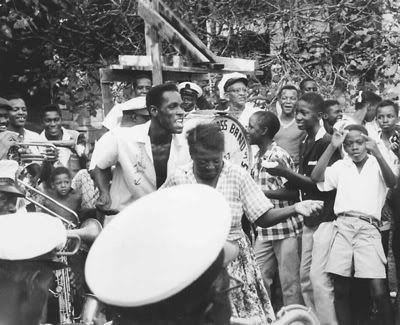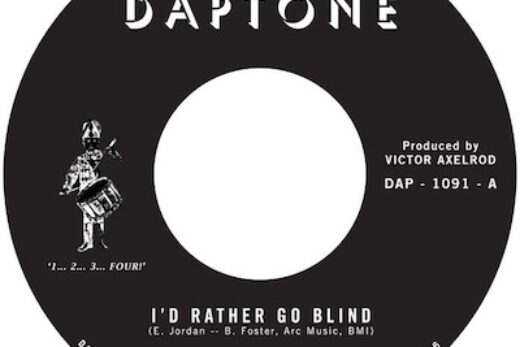
I’ve been working on a 4 hour Southern soul set for a private party and it’s been an enjoyable challenge sifting through what seems like an endless stream of tunes from across the great Southern soul cities – especially Memphis, Muscle Shoals, Jackson, Miami, etc. New Orleans figures prominently but what I’m continually struck by is how distinct that NOLA sound is. Obviously, the South is hardly monolithic but while some influences are shared between, say, Fame and Stax Studios, much of what you heard coming out of New Orleans was so distinct, there’s no confusing it for anywhere but there. Here’s two NOLA-flavored cuts that exemplify what I’m talking about.
Don Covay and the Jefferson Lemon Blues Band: Standing In the Grits Line
From Different Strokes for Different Folks (Janus, 1970). Also on Super Bad.
Professor Longhair: Big Chief (Pt. 1)
From 7″ (Watch, 1964). Also on New Orleans Funk.
Covay isn’t from Louisiana (South Carolina, as it were) but thanks to a journeyman career that saw him bouncing around on Atlantic, Columbia, Janus, Mercury, even Philly Int’l, Covay recorded throughout the south, especially his time with Atlantic that tended to jump from Southern studio to another thanks to Jerry Wexler’s fickle tastes (and calculated business decisions). This album, recorded during Covay’s brief stint on Janus, was recorded at the famed Malaco Studios in Jackson, MS and there’s no question that for “Standing On the Grits Line,” (a Covay composition), he’s borrowing heavily from New Orleans’ second line traditions – if the voice was just a bit gruffer, you could easily confused this for a Dr. John cut. This cut’s long been a personal favorite of mine – I’m genuinely surprised I never posted this (last time I gave Covay some shine was for “If There’s a Will, There’s a Way”, a cut from the same album)>.
“Big Chief” is a stone cold New Orleans classic and considered by many a clear sign of the city’s proto-funk innovations. Obviously, the Professor’s jangling piano stands out prominently here but try to pay some attention to what Smokey Johnson is doing here on the drums. His polyrhythm is incredible – there’s all kinds of seemingly off-beats here (except of course, sounding “off” is how you sound “on”). No wonder then that Smokey would become of the most important session drummers in New Orleans in the 1960s, alongside James Black.



chatter